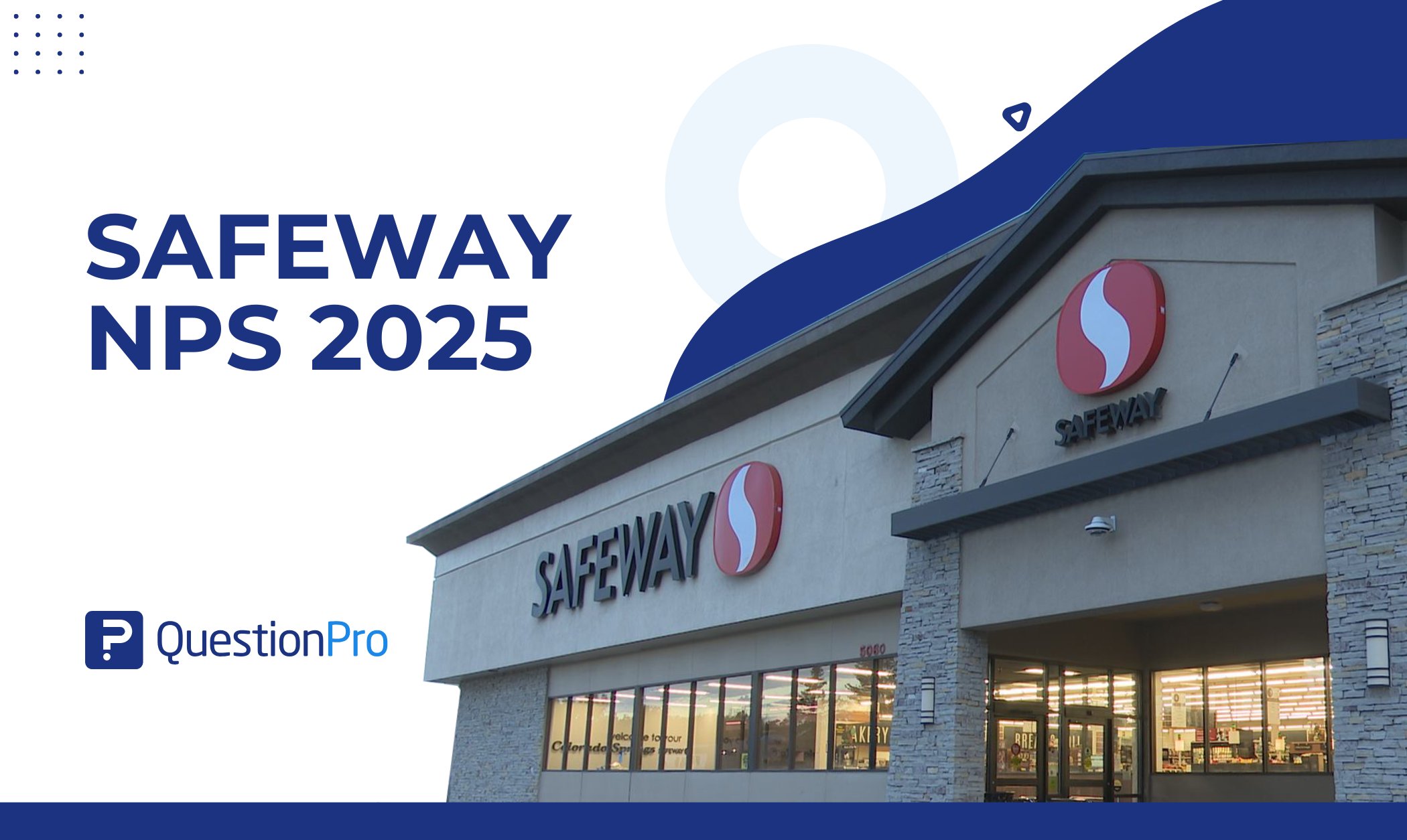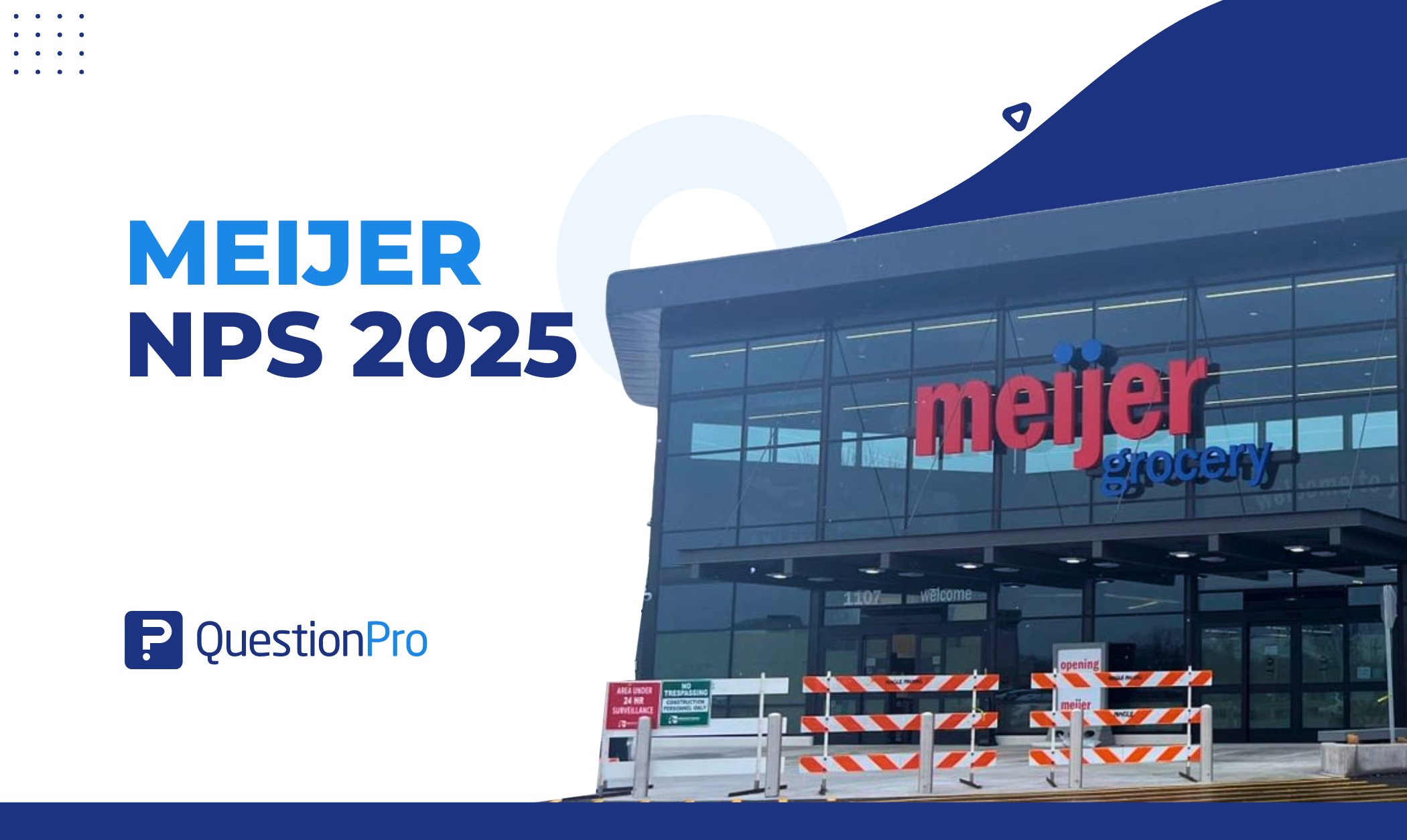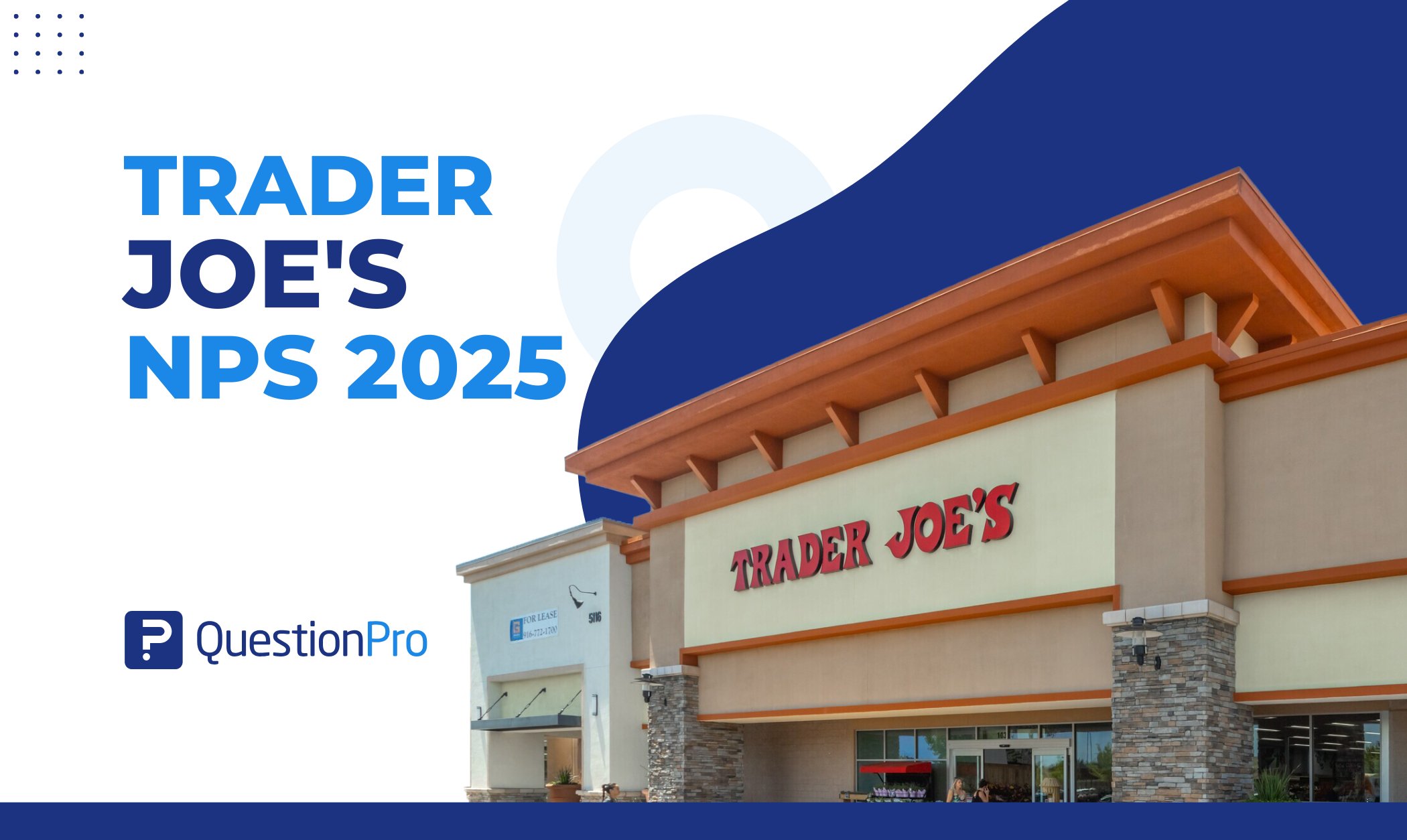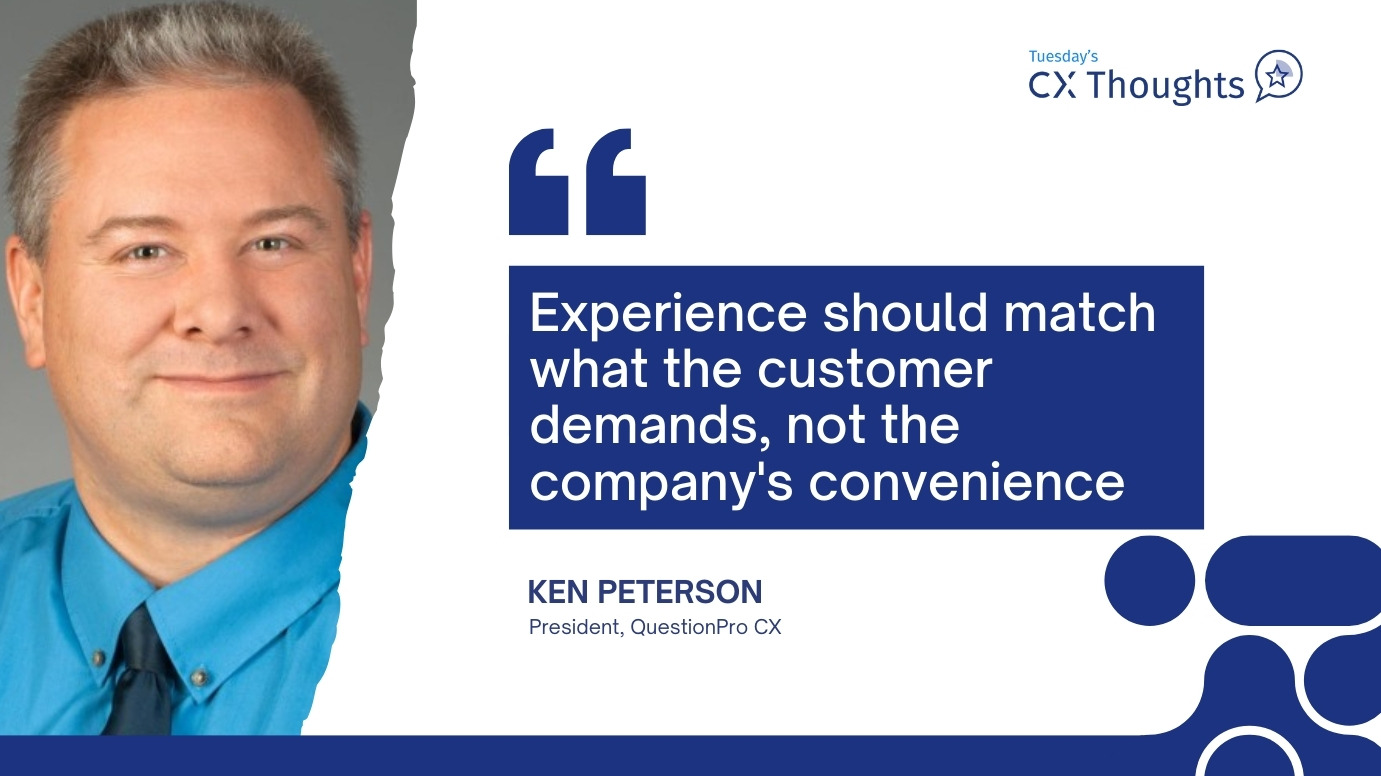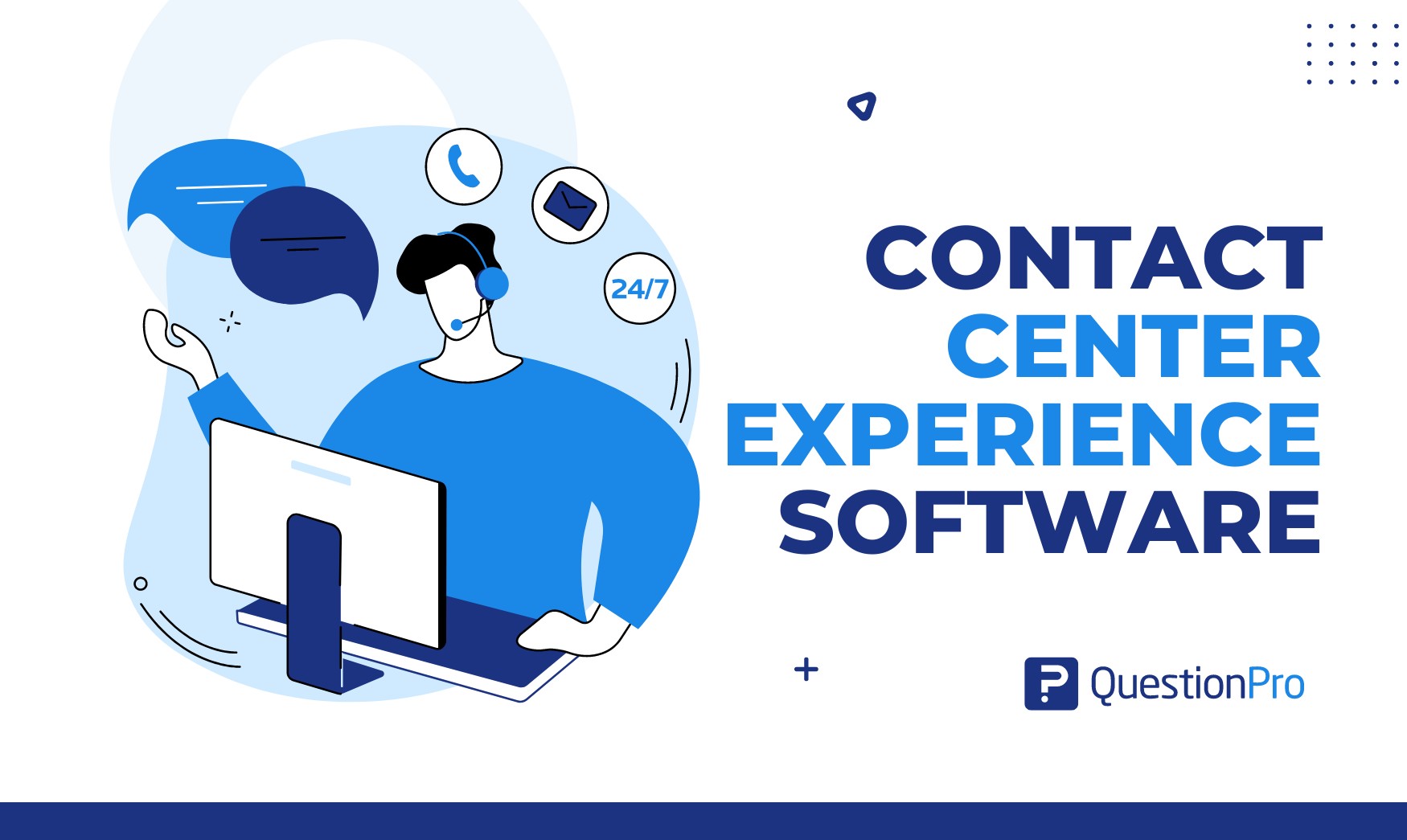
In 2025, as businesses continue to prioritize customer-centric approaches, the role of contact center experience software has become increasingly vital. These call center software solutions serve as the backbone of customer interactions and are pivotal in shaping overall brand perception.
The importance of contact center experience software cannot be overstated in an era where customer experience reigns supreme. These solutions are designed to streamline communication channels, unify customer interactions, and provide valuable insights to drive informed decision-making.
From AI-powered chatbots and omni-channel support to advanced analytics and workforce management tools, the offerings in this list cater to organizations of all sizes and industries and promise to revolutionize their customer engagement.
The featured solutions leverage cutting-edge technologies such as artificial intelligence, machine learning, and natural language processing to deliver personalized experiences, anticipate customer needs, and resolve issues more efficiently. Whether enhancing self-service capabilities, optimizing agent workflows, or fostering proactive engagement, these software platforms are at the forefront of driving positive interactions and building lasting relationships.
What is Contact Center Experience Software?
Contact Center Experience Software is a complete suite of tools and technologies designed to optimize customer interactions within a contact center environment. At its core, this call center software aims to enhance the overall experience for both customers and agents by providing streamlined communication channels, personalized interactions, and actionable insights.
One key aspect of Contact Center Experience Software is its focus on omni-channel communication. This allows customers to connect with businesses through their preferred channels, whether phone calls, emails, live chat, social media, or messaging apps. By providing a seamless experience across these various touchpoints, organizations can meet customers where they are and deliver consistent, personalized support regardless of the channel chosen.
Furthermore, Contact Center Experience Software empowers agents with the tools and information they need to deliver superior service. Key features such as intelligent routing, knowledge bases, and real-time analytics enable agents to quickly access relevant data, resolve inquiries efficiently, and anticipate customer needs.
Key Elements of Contact Center Software
Contact Center Software encompasses a variety of key elements that work together to streamline interactions, empower agents, and drive positive outcomes. Some of the key elements include:
Omni-channel Communication:
This call centers software enables businesses to engage with customers across multiple channels, including emails, phone calls, live chat, social media, SMS, and messaging apps. This omni-channel approach ensures customers a seamless and consistent experience regardless of their chosen communication channel.
CRM Integration:
Integration with Customer Relationship Management (CRM) systems permits agents to access customer data, purchase history, preferences, and other relevant information during interactions. This integration enables personalized and contextually relevant conversations, enhancing the customer experience.
Automatic Call Distribution (ACD):
ACD functionality automatically routes inbound and outbound calls to the most suitable agent based on skills, availability, and customer priority. It ensures efficient call handling and reduces wait times, improving customer satisfaction.
Interactive Voice Response (IVR):
IVR systems use pre-recorded voice prompts and touch-tone keypad responses to route callers to the appropriate department or self-service options. IVR streamlines call routing and enables customers to resolve simple inquiries independently, reducing the need for agent intervention.
Call Recording and Monitoring:
Contact center software often includes features for recording and monitoring calls for quality assurance and training. Supervisors can listen to calls, provide feedback to agents, identify coaching opportunities, and ensure compliance with regulations.
Real-Time Analytics and Reporting:
Advanced analytics capabilities provide insights into key performance metrics such as call volumes, wait times, first-call resolution rates, customer satisfaction scores, and agent performance. Real-time reporting enables supervisors to make data-driven decisions and identify areas for improvement.
Artificial Intelligence (AI) and Automation:
AI-powered chatbots, virtual assistants, and automation capabilities help handle routine inquiries, provide immediate responses, and assist customers 24/7. AI-driven insights can also predict customer behavior, personalize interactions, and identify possibilities for upselling or cross-selling.
Integration with Third-Party Applications:
Contact center software often integrates with various third-party applications and systems, such as helpdesk, ticketing systems, e-commerce platforms, and social media management tools. These integrations enable seamless data sharing and workflow automation across different departments and systems.
These key elements collectively create a cohesive and efficient contact center environment, enabling organizations to deliver exceptional customer service and support experiences.
Sectors to Use of Contact Center Experience Software
Contact center experience software can be beneficial across various sectors where organizations need to engage with customers, clients, or users for support, sales, or other interactions. Here are some sectors where contact center experience software is commonly used:
Retail:
Retail businesses often use contact center software to handle customer inquiries, process orders, provide product information and offer support services.
Telecommunications:
Telecom companies utilize contact center software to manage customer service inquiries, troubleshoot technical issues, process billing inquiries, and handle service activations or cancellations.
Healthcare:
Healthcare providers, including hospitals, clinics, and insurance companies, use contact center software to schedule appointments, provide patient support, handle billing inquiries, and offer telehealth services.
Hospitality:
Hotels, resorts, and travel agencies utilize contact center software to manage reservations, assist guests with inquiries or issues, provide concierge center services, and handle feedback or complaints.
Technology:
Technology companies leverage contact center software for technical support, product information, software licensing inquiries, and customer feedback management.
E-commerce:
Online retailers and e-commerce platforms use contact center software to manage customer inquiries, process orders, handle returns and exchanges, and provide assistance with website navigation.
Education:
Educational institutions, such as universities, colleges, and online learning platforms, utilize contact center software for student support services, course enrollment, tuition inquiries, and academic advising.
Government:
Government agencies and departments use contact center software to handle citizen inquiries, provide information about services and programs, process applications, and assist with regulatory compliance.
Organizations interacting with customers, clients, or users can benefit from implementing contact center software to enhance customer communication, improve customer satisfaction, and streamline business processes.
Importance of contact Center Experience Software
Contact Center Experience Software plays a pivotal role in modern business operations due to several key reasons:
Enhanced Customer Satisfaction:
Contact Center Experience Software empowers businesses to deliver personalized, timely, and efficient customer support across various channels. Companies can effectively address customer needs through seamless omni-channel communication and access to pertinent customer data, resulting in heightened satisfaction and increased loyalty.
Improved Operational Efficiency:
Contact center software streamlines processes and automates routine tasks like call routing, IVR interactions, and case management. This efficiency allows organizations to handle higher call volumes, reduce wait times, and optimize agent productivity, ultimately driving down operational costs while maintaining service levels.
Data-Driven Insights:
Modern contact center software provides robust analytics and reporting capabilities, offering valuable insights into customer interactions, agent performance, and overall contact center operations. By leveraging these insights, businesses can identify trends, detect areas for progress, and make informed decisions to enhance the customer experience and optimize processes.
Empowered Agents:
Contact center software equips agents with the tools and information they need to deliver superior service. Integrated CRM systems, knowledge bases, and real-time analytics enable agents to access relevant customer data, resolve inquiries efficiently, and provide personalized support. This empowerment improves agent satisfaction and enhances their ability to engage with customers effectively.
Adaptability and Scalability:
Contact center software is designed to adapt to changing customer needs and business requirements. Whether scaling up to handle seasonal peaks in call volumes or integrating new communication channels, such as social media or messaging apps, contact center software provides the flexibility and scalability necessary to meet evolving demands.
Compliance and Security:
With increasing data privacy and security regulations, contact center software is crucial in ensuring compliance with industry benchmarks and protecting sensitive customer information. Security features like encryption, access controls, and compliance tools help organizations safeguard data and mitigate risks.
Call Center Software is a strategic asset for businesses looking to optimize interactions, streamline operations, and stay ahead in an increasingly customer-centric marketplace.
21 Best Contact Center Experience Software
Contact center experience software ensures seamless interactions between businesses and customers across various communication channels. These call center software solutions encompass many key features designed to streamline processes, enhance agent efficiency, and deliver personalized experiences.
1. QuestionPro:
QuestionPro provides comprehensive contact center experience software, empowering businesses to efficiently manage interactions across multiple channels. It offers multi-channel support, real-time analytics, and customizable surveys to gather customer feedback.
Features:
- Advanced survey capabilities for gathering customer feedback.
- Multi-channel support to connect with customers through various channels.
- Analytics and reporting tools for actionable insights.
- Customizable workflows to suit different business needs.
- Integration options with CRM systems for streamlined operations.
- Automation features to improve efficiency and reduce manual tasks.
Limitations:
- Advanced features may require more effort and resources to be effectively used.
- May experience occasional bugs or glitches in the platform.
Pricing: Most popular plans start at $99 per month, with pricing tiers available for businesses of all sizes. Custom pricing options are available for enterprises with specific needs.
2. Zendesk:
Zendesk, renowned for its customer service platform, integrates a robust call center solution within its offerings. It offers omni-channel support, self-service options, a ticketing system, and integrations with various business tools for a seamless customer experience.
Features:
- Omni-channel support to manage interactions across multiple channels.
- Ticketing system for organizing and prioritizing customer inquiries.
- Knowledge base for self-service options and agent support.
- Collaboration tools for team communication and problem-solving.
- Customizable dashboards and reporting for performance tracking.
- Integration capabilities with third-party applications and platforms.
Limitations:
- The steep learning curve for administrators configuring the contact center system.
- Limited options for outbound communication channels like SMS or voice calls.
- Integration complexities with specific CRM systems.
Pricing: Pricing starts at around $5-$19 per user per month for the Support Suite, with additional costs for other features like Chat, Talk, and Explore. Custom pricing is available for larger enterprises.
3. Genesys:
Genesys is one of the top center software providers of contact center software solutions. Their platform offers advanced routing capabilities, workforce optimization tools, and AI-driven analytics to enhance customer engagement and agent productivity.
Features:
- AI-powered automation for improved customer engagement and support.
- Personalization features for tailored customer interactions.
- Comprehensive analytics and reporting for data-driven decision-making.
- Scalability to accommodate growing business needs.
- Multi-channel support, including voice, chat, email, and social media.
- Integration with CRM systems and other business tools for a unified experience.
Limitations:
- High initial setup costs and ongoing maintenance expenses.
- Complexity in managing and configuring advanced routing strategies.
- Customization options may require dedicated IT resources.
Pricing: Offers custom pricing based on each organization’s specific needs and scale. Pricing is available upon request.
4. Salesforce Service Cloud:
Salesforce Service Cloud is part of the CRM platform and provides contact center capabilities. This call center software empowers businesses to provide tailored customer service across diverse channels, encompassing email, chat, phone support, and social media.
Features:
- Unified view of interactions and data for better insights.
- AI-driven service capabilities for personalized customer experiences.
- Case management tools for efficient issue resolution.
- Knowledge management software for self-service and agent support.
- Integration with Salesforce CRM for seamless data flow.
- Mobile accessibility for agents to provide support on the go.
Limitations:
- Cost-prohibitive for small to medium-sized businesses.
- Integration challenges with non-Salesforce CRM systems.
- Limited support for advanced omni-channel communication.
Pricing: Offers custom pricing based on each organization’s specific needs and scale. Pricing is available upon request.
5. Talkdesk:
Talkdesk is a cloud-native contact center solution crafted to enhance customer interactions. It offers intelligent routing, real-time monitoring, and integration with CRMs to streamline communication and improve satisfaction.
Features:
- Cloud-based platform for flexibility and scalability.
- Advanced routing capabilities for efficient call handling.
- Real-time analytics and reporting for performance monitoring.
- AI-driven automation for improved efficiency and customer experience.
- Integrations with CRM and other business tools for a unified ecosystem.
- Customizable workflows and IVR options for personalized experiences.
Limitations:
- Integration limitations with specific legacy systems or niche software.
- Advanced features may require additional subscription tiers, increasing costs.
- Occasional reliability issues affecting uptime and service continuity.
- Customization options may be constrained for complex routing scenarios.
Pricing: Pricing starts at around $85 per user per month for the Basic plan, with higher-tier plans available for advanced features and larger teams.
6.Five9:
Five9 is a cloud contact center software provider known for its robust features, including IVR, predictive dialing, and CRM integrations. It helps businesses deliver exceptional customer experiences through various communication channels.
Features:
- Cloud-based call center solution for flexibility and scalability.
- Omni-channel support, including voice, email, chat, and social media.
- Predictive dialer for outbound campaigns and proactive customer engagement.
- Robust analytics and reporting for actionable insights.
- Integration with CRM systems and other business applications.
- Compliance tools for regulatory requirements such as PCI DSS and GDPR.
Limitations:
- Complexity in configuring and managing integrations with CRM and other systems.
- Limited support for advanced workforce management features.
- Challenges in handling peak call volumes during high-demand periods.
Pricing: Pricing starts at around $149 per user per month for the Basic plan, with higher-tier plans available for advanced features and larger teams.
7. Avaya:
Avaya presents a range of contact center solutions tailored to different business needs. Its call center platform includes features like voice, email, chat, social media integration, and advanced analytics and reporting capabilities.
Features:
- Unified communication and collaboration tools for seamless interactions.
- Intelligent routing for efficient call distribution and resolution.
- Scalable call center solutions to adapt to changing business needs.
- Analytics and reporting for performance tracking and optimization.
- Integration capabilities with CRM systems and third-party applications.
- Advanced features such as speech analytics and workforce optimization.
Limitations:
- Customization options may require specialized Avaya development expertise.
- Compatibility issues with specific operating systems or hardware configurations.
- Limited scalability for rapidly growing contact centers.
Pricing: Pricing starts at around $35 per user per month for the Basic plan.
8. Aircall:
Aircall is a cloud-based phone system developed for modern contact centers. It offers features such as call routing, analytics, and integrations with CRM platforms to improve efficiency and satisfaction.
Features:
- Cloud-based phone system for streamlined communication.
- Easy setup and integration with existing tools and workflows.
- Call management features, including call routing and forwarding.
- Real-time analytics for monitoring call performance and agent productivity.
- Collaboration tools for team communication and problem-solving.
- Mobile accessibility for remote work and on-the-go support.
Limitations:
- Limited support for advanced IVR (Interactive Voice Response) configurations.
- Concerns over data security and privacy compliance, particularly for sensitive industries.
- Reliability issues are reported during peak usage times or network congestion.
Pricing: Pricing starts at around $30 per user per month for the Basic plan.
9.RingCentral:
RingCentral provides a comprehensive cloud communications platform that includes contact center features. It offers omni-channel support, workforce optimization tools, and integrations with business applications for seamless interactions.
Features:
- Unified communication platform for voice, video, and messaging.
- Scalable solutions are suitable for businesses of all sizes.
- Call management features, including call forwarding and voicemail transcription.
- Integration with business applications such as CRM and productivity tools.
- Analytics and reporting are used to monitor call quality and performance.
- Collaboration tools for team communication and project management.
Limitations:
- Limited support for complex call routing and IVR customization.
- Integration challenges with specific CRM and helpdesk software.
- Occasional service disruptions are impacting call quality and reliability.
Pricing: Pricing core at around $20 per user per month for the Basic plan.
10. NICE CXone:
NICE CXone is a unified cloud contact center platform that combines omni-channel routing, analytics, and workforce optimization capabilities. It allows companies to provide personalized customer experiences and drive operational efficiency.
Features:
- Comprehensive contact center suite with omni-channel support.
- AI-driven automation for personalized interactions.
- Analytics and reporting for actionable insights and performance tracking.
- Quality management tools for monitoring and improving agent performance.
- Integration capabilities with CRM systems and other business applications.
- Scalable call center solutions to accommodate growing business needs.
Limitations:
- Complexity in navigating and configuring the extensive feature set.
- Integration challenges with non-standard or custom CRM systems.
- Limited flexibility in adapting to unique contact center workflows.
Pricing: Pricing starts at around $71 per user per month for the Basic plan.
11. Twilio Flex:
Twilio Flex is a programmable contact center platform that allows businesses to build customized solutions tailored to their needs. It offers flexibility, scalability, and advanced features like AI-powered chatbots and analytics.
Features:
- A programmable contact center platform for customization and flexibility.
- Omni-channel support, including voice, SMS, chat, and email.
- Real-time reporting and analytics for monitoring performance.
- Integration with CRM systems and other business tools through APIs.
- Customizable UI and workflows to match specific business requirements.
- Scalable solutions are suitable for businesses of all sizes.
Limitations:
- Dependency on developer resources for customizations beyond basic configurations.
- Integration complexities with specific CRM and ticketing systems.
- More out-of-the-box features compared to some established contact center solutions.
Pricing: Pricing starts at around $1 per user per hour for the Basic plan.
12.LiveAgent:
LiveAgent is a help desk and live chat software with contact center features. It offers a ticketing system, live chat, social media integration, and knowledge base management for efficient customer support.
Features:
- Multi-channel support for efficient customer engagement.
- Ticketing system for organizing and prioritizing customer inquiries.
- Knowledge base for self-service options and agent support.
- Real-time chat translation for multilingual support.
- Automation features for streamlining repetitive tasks.
- Integration capabilities with CRM systems and e-commerce platforms.
Limitations:
- Limited scalability for rapidly growing contact centers with increasing call volumes.
- Integration challenges with specific CRM and helpdesk platforms.
- Customization options may require technical expertise and additional development resources.
Pricing: Pricing starts at around $9 per user per month for the Basic plan.
13. Cisco Contact Center:
Cisco provides a diverse array of contact center software solutions tailored to accommodate the needs of businesses across different sizes and industries. Its platform includes intelligent call routing, workforce optimization, and CRM integration for enhanced customer service.
Features:
- Advanced routing capabilities for efficient call handling.
- Multi-channel support, including voice, email, chat, and social media.
- Real-time analytics and reporting for performance monitoring.
- Integration with Cisco collaboration tools for seamless communication.
- Customizable workflows and scripting for personalized interactions.
- Scalable solutions are suitable for businesses of all sizes.
Limitations:
- Complex configuration requirements necessitating specialized IT expertise.
- Limited support for specific communication channels like social media or SMS.
- Challenges in integrating with non-Cisco ecosystem components.
Pricing: Cisco’s pricing for solutions can vary widely based on factors such as deployment options (cloud-based or on-premises), licensing model, and specific feature requirements.
14. Freshdesk Contact Center:
Freshdesk Contact Center is a part of the Freshdesk customer support teams software suite. It offers omni-channel support, self-service options, and automation tools to streamline customer interactions and improve agent productivity.
Features:
- Omni-channel support for seamless customer interactions across various channels.
- Ticketing system for organizing and prioritizing customer inquiries.
- Collaboration tools for team communication and problem-solving.
- AI-powered automation for improved efficiency and customer experience.
- Integration capabilities with CRM systems and other business tools.
- Customizable dashboards and reporting for performance tracking.
Limitations:
- Limited scalability for large enterprises with complex contact center needs.
- Integration challenges with specific CRM and ticketing systems outside of the Freshworks ecosystem.
- Customization options may be constrained compared to more flexible platforms.
Pricing: Freshdesk typically offers subscription-based pricing plans with different tiers based on the number of users and features required. They may also provide add-ons for advanced functionality.
15. Bright Pattern:
Bright Pattern provides a cloud-based call center solution with features like omni-channel communication, AI-driven analytics, and customizable workflows. It helps businesses deliver seamless customer experiences across multiple channels.
Features:
- Cloud-based contact center solution for flexibility and scalability.
- Omni-channel support, including voice, chat, email, and social media.
- AI-driven automation for personalized customer experiences.
- Analytics and reporting for actionable insights and performance tracking.
- Integration with CRM systems and other business applications.
- Compliance tools for regulatory requirements such as PCI DSS and GDPR.
Limitations:
- Integration challenges with particular CRM and backend systems.
- Limited support for compliance standards in regulated industries.
- Occasional reliability issues are reported during peak usage times or software updates.
Pricing: Bright Pattern generally offers subscription-based pricing for its contact center solutions. Pricing may vary based on factors such as the number of users, desired features, and level of support.
16.8×8 Contact Center:
8×8 Contact Center is a cloud-based platform that offers features such as IVR, call recording, and quality management tools. It helps businesses manage customer interactions efficiently and deliver exceptional service.
Features:
- Cloud-based communication platform for voice, video, and chat.
- Advanced routing and queuing for efficient call handling.
- Real-time analytics and reporting for performance monitoring.
- Integration with CRM systems and other business applications.
- Collaboration tools for team communication and problem-solving.
- Scalable solutions are suitable for businesses of all sizes.
Limitations:
- Integration challenges with particular CRM and helpdesk platforms.
- Limited support for advanced IVR customization and call routing strategies.
- Higher costs are associated with additional add-ons or premium features.
Pricing: 8×8 typically provides subscription-based pricing plans, with variations based on the number of users and desired features. They may also offer additional services such as unified communications.
17. Oracle Sales Cloud:
Oracle Sales Cloud’s CRM software suite includes contact center capabilities. It offers features like lead management, sales automation, and customer service tools to drive sales and enhance customer satisfaction.
Features:
- Comprehensive CRM platform with contact center capabilities.
- Unified view of customer interactions and data for better insights.
- AI-driven service capabilities for personalized customer experiences.
- Integration with Oracle’s suite of business applications for seamless operations.
- Mobile accessibility for agents to provide support on the go.
- Customizable workflows and automation for improved contact center efficiency.
Limitations:
- Complexity in integrating with non-Oracle CRM systems.
- Limited flexibility in customizing contact center workflows.
- Higher costs associated with Oracle’s enterprise-grade features and support.
Pricing: Pricing varies depending on the specific applications and services required, with custom pricing available upon request.
18. Zoho Desk:
Zoho Desk is a cloud-based service desk software with contact center features. It offers a ticketing system, knowledge base, and automation tools to streamline customer support processes and improve agent productivity.
Features:
- Multi-channel support for efficient customer engagement.
- Ticketing system for organizing and prioritizing customer inquiries.
- Knowledge base for self-service options and agent support.
- Automation features for streamlining repetitive tasks.
- Integration capabilities with CRM systems and other business applications.
- Customizable dashboards and reporting for performance tracking.
Limitations:
- Limited support for advanced contact center functionalities such as omni-channel routing.
- Integration challenges with non-Zoho CRM and help desk solutions.
- Customization options may be constrained compared to dedicated contact center platforms.
Pricing: Pricing starts at around $14 per user per month for the Basic plan, with higher-tier plans available for advanced features and larger teams.
19. UJET:
UJET is a cloud contact center solution designed for modern customer service teams and customer support teams. It offers intelligent routing, proactive outreach, and real-time analytics to optimize customer interactions and drive loyalty.
Features:
- Omni-channel support, including voice, chat, email, and SMS.
- AI-powered automation for personalized customer interactions.
- Real-time analytics and reporting for performance monitoring.
- Integration with CRM systems and other business applications.
- Mobile SDKs are used to embed customer support directly into mobile apps.
- Scalable solutions are suitable for businesses of all sizes.
Limitations:
- Integration complexities with specific CRM and ticketing systems.
- Limited support for advanced workforce management features.
- Occasional service disruptions are impacting call quality and reliability.
Pricing: UJET often offers subscription-based pricing plans for their contact center solutions, with variations based on the number of agents and desired features. They may also provide add-ons for advanced functionality and integrations.
20. Webex:
Webex provides contact center solutions with features like video conferencing, messaging, and file sharing, enabling seamless business communication and collaboration. It allows businesses to offer seamless customer support through various communication channels.
Features:
- Unified communication and collaboration platform.
- Video conferencing and screen sharing for remote support.
- Call routing and management features for efficient call handling.
- Integration with CRM systems and other business applications.
- Security features for protecting customer data and privacy.
- Scalable solutions are suitable for businesses of all sizes.
Limitations:
- Limited scalability for large enterprises with complex contact center needs.
- Integration challenges with specific CRM and ticketing systems.
- Dependency on Cisco’s ecosystem for updates and support may lead to vendor lock-in concerns.
Pricing: Pricing starts at around $14.50 per user per month for the Basic plan, with higher-tier plans available for advanced features and larger teams.
21. Aspect:
Aspect offers contact center solutions with features like IVR, outbound dialing, and workforce optimization to help businesses deliver efficient and personalized customer experiences across various channels.
Features:
- Comprehensive contact center suite with omni-channel support.
- AI-driven automation for personalized customer experiences.
- Real-time analytics and reporting for performance monitoring.
- Integration with CRM systems and other business applications.
- Quality management tools for monitoring and improving agent performance.
- Scalable solutions to accommodate growing business needs.
Limitations:
- Complexity in managing and configuring advanced routing and automation features.
- Limited support for specific communication channels like social media platforms or SMS.
- Integration challenges with non-Aspect ecosystem components.
Pricing: Aspect typically offers subscription-based pricing plans for their contact center solutions, depending on the number of users and desired features. They may also provide add-ons for advanced functionality.
These best call center software solutions cater to diverse needs within the contact center industry, providing businesses with the software they require to deliver exceptional customer experiences and drive operational efficiency.
If you’ve been searching for a hassle-free way to handle subscriptions, explore the top subscription management software options that can help make your billing processes smoother and contribute to the overall growth of your business.
Why QuestionPro Can be The Best Choice
QuestionPro can be considered the best Contact Center Experience Software for several reasons:
Omni-channel Communication:
QuestionPro offers seamless integration across multiple communication channels, including email, SMS, chat, and social media. It allows businesses to engage with customers wherever they are, providing a consistent experience across all touchpoints.
Advanced Analytics:
With robust analytics capabilities, QuestionPro enables businesses to gain deep insights into customer interactions, agent performance, and overall contact center operations. Organizations can make informed decisions to improve service quality and optimize processes by leveraging data-driven insights.
Personalization:
QuestionPro’s platform allows personalized customer interactions by leveraging customer data and preferences. Through dynamic scripting and AI-driven recommendations, agents can deliver tailored support that meets each customer’s unique needs, enhancing satisfaction and loyalty.
Efficient Workflow Management:
QuestionPro streamlines contact center workflows with features such as automatic call distribution (ACD), interactive voice response (IVR), and workforce management tools. It ensures efficient call handling, reduces wait times, and maximizes agent productivity.
Scalability and Flexibility:
QuestionPro’s scalable architecture and flexible deployment options suit businesses of all sizes and industries. Whether handling a small customer service team or a large contact center operation, QuestionPro can adapt to meet evolving needs and growth requirements.
Ease of Integration:
QuestionPro integrates with existing CRM systems, helpdesk software, and other third-party applications, ensuring smooth data flow and workflow automation. It enables organizations to leverage existing infrastructure while enhancing the capabilities of their contact center.
QuestionPro stands out as the best Contact Center Experience Software due to its comprehensive features, advanced analytics, personalized interactions, and commitment to security and compliance. By leveraging QuestionPro’s platform, businesses can elevate their contact center operations, drive customer satisfaction, and gain a competitive edge in today’s market.
Conclusion
Contact Center Experience Software plays a pivotal role in shaping the customer service landscape of today’s business world. These call center software solutions drive higher satisfaction and loyalty by providing organizations with the tools and capabilities to deliver personalized, efficient, seamless customer support across multiple channels.
Contact Center Software gives businesses invaluable insights into customer behaviors, preferences, and pain points. By leveraging data-driven insights and automation capabilities, organizations can streamline processes, improve agent productivity, and deliver exceptional customer experiences that set them apart.
As customer anticipations continue to rise and competition boosts, investing in Contact Center Experience Software becomes increasingly critical for organizations seeking to remain competitive and thrive in today’s market. Through these advanced software solutions, businesses can forge stronger customer relationships, boost revenue, and achieve enduring success in the evolving realm of customer service.




